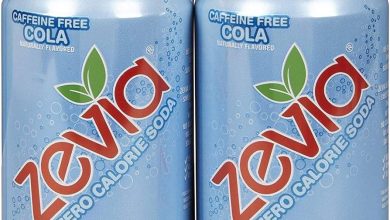Buckwheat: A Nutrient-Rich Grain for Your Diet
Buckwheat, despite its name, is not related to wheat and is naturally gluten-free. It’s a highly nutritious pseudocereal that’s been a staple in many cultures for centuries, known for its distinct flavor and versatile usage in both savory and sweet dishes. This ancient grain is packed with essential nutrients that can support your overall health. Whether you’re making buckwheat pancakes, adding it to soups, or using it as a base for salads, its impressive nutrient profile makes it an excellent choice for health-conscious eaters.
Nutritional Information
| Nutrient | Amount per 100g |
|---|---|
| Energy | 343 kcal |
| Protein | 13.25 g |
| Total Fat | 3.4 g |
| Saturated Fats | 0.741 g |
| Carbohydrates | 71.5 g |
| Dietary Fiber | 10.0 g |
| Sugars | 0.0 g |
| Calcium | 18.0 mg |
| Iron | 2.2 mg |
| Magnesium | 231 mg |
| Phosphorus | 347.0 mg |
| Potassium | 460.0 mg |
| Sodium | 1.0 mg |
| Zinc | 2.4 mg |
| Copper | 1.1 mcg |
| Manganese | 1.3 mg |
| Selenium | 8.3 mcg |
| Vitamin C | 0.0 mg |
| Thiamine (Vitamin B1) | 0.101 mg |
| Riboflavin (Vitamin B2) | 0.425 mg |
| Niacin (Vitamin B3) | 7.02 mg |
| Vitamin B6 | 0.21 mg |
| Folate | 30.0 mcg |
| Vitamin B12 | 0.0 mcg |
| Vitamin A | 0.0 mcg |
| Vitamin E | 0.0 mg |
| Vitamin D2 | 0.0 mcg |
Allergen Information:
Buckwheat is naturally gluten-free, making it an excellent choice for those with celiac disease or gluten sensitivity. However, people who are allergic to buckwheat should avoid its consumption, as it can cause allergic reactions in rare cases. Always check for cross-contamination with other grains that contain gluten when purchasing processed buckwheat products.
Dietary Preferences:
Buckwheat is a great option for various dietary needs:
- Gluten-Free: Ideal for those following a gluten-free diet.
- Vegan/Vegetarian: A plant-based source of protein and essential nutrients.
- High in Fiber: Beneficial for those looking to increase fiber intake for digestive health.
- Low in Fat: Suitable for those following low-fat or heart-healthy diets.
Health Benefits:
Buckwheat is rich in essential amino acids, making it a complete protein, which is particularly beneficial for those on plant-based diets. Its high fiber content supports digestive health, while the magnesium and potassium levels contribute to improved heart health. Additionally, buckwheat is a good source of antioxidants, which may help reduce inflammation and oxidative stress in the body.
Cooking Tips:
- Use buckwheat as a hearty addition to salads or grain bowls.
- Make a warm, nourishing porridge for breakfast by cooking buckwheat with milk or plant-based alternatives and topping with fruits and nuts.
- Incorporate buckwheat flour in baking recipes for pancakes, bread, and cookies.
Conclusion:
Buckwheat is more than just a nutritious grain; it’s a versatile and health-boosting ingredient that fits well in various diets. Its rich profile of protein, fiber, and essential minerals, along with its gluten-free nature, makes it a valuable food to include in your pantry. Whether you’re looking to improve your digestive health, boost your protein intake, or add a unique flavor to your dishes, buckwheat can be a fantastic and nourishing addition to your meals.










